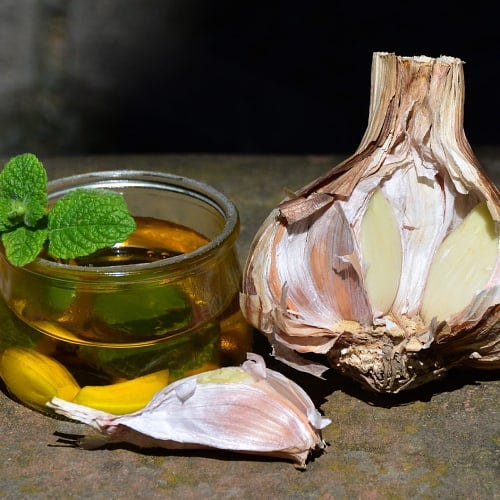Welcome to Natural Wonders, where curiosity is king! Do you wonder about something in the natural world? If so, reply to this email or leave a comment at the bottom of the newsletter and I’ll add it to my wonderings about the birds and the bees.
Check out past posts by going here and see who I am and what Natural Wonders is about here.

Whenever Andrew and I go for a walk in the summer, he always attracts ticks. We oftentimes walk up the hill along the overgrown roadbed with Oscar sniffing alongside, or recently we worked on fixing the hinges on the broken farm gate, and it seems like afterwards he has to pick at least 3 ticks off his legs while I usually find none.
We’re walking in the exact same locations, so why is he so much more attractive to ticks? Does it have to do with his blood type? Could it be the different soaps we each use? Is it because of something we’ve eaten? Does he taste sweeter? (He insists this is the answer)
Why is my husband a tick magnet?
First, some information about ticks. They’re actually a member of the arachnid family and thus have eight legs like spiders, scorpions and mites. They live in wooded or grassy areas and thrive when their habitat is warm and wet because they need water but can’t drink – they must absorb water into their bodies from the atmosphere. Droughts make it hard (but not impossible) for them to survive.
Ticks are blood-sucking parasites that attach themselves not just to mammals but also birds and even some frogs and lizards. Most folks get the creeps even thinking about ticks because of their tendency to spread disease – in the U.S., ticks spread more disease than mosquitoes, which are the world-wide king of deadly insects because they spread malaria. But we control malaria well in the U.S., leaving Lyme’s disease and Rocky Mountain Spotted Fever among the many diseases spread by ticks.
Ticks have a lifecycle similar to other insects – a tick begins as one of between 1,500 to 5,000 eggs the female lays in the ground in the spring. The ticks hatch and move through stages from larva to nymph to adult over 2-3 years, needing a new host at each stage.
When ticks have just hatched, they are extremely tiny, resembling a poppy seed with six legs (at the larval stage, they don’t have eight legs). They can still latch on at this stage, and in fact, most people are infected by ticks at the larva and nymph stages because they’re so hard to see and remove. When they’re this small they’re commonly called Seed Ticks, which was news to me because I thought Seed Ticks were their own species of dangerous, tiny ticks – they’re not: they’re just regular ticks at the “almost invisible” stage.
So, how do ticks, no matter their size, find us? They don’t leap out of trees or bushes because they can’t jump. They don’t watch for you to come jogging by because they have no eyes. But they do climb blades of grass or a branch, hold on with their back legs and reach out with their front legs, hoping a host will walk by. This is called “questing” and is a fairly passive way to find your next meal. Adult ticks can survive over a year without a meal while they wait.

If they don’t have eyes, how do they know we’re there? There’s a common consensus that ticks sense a living creature nearby from the carbon dioxide we put off – it’s also how mosquitoes, fleas, and chiggers zero in on your whereabouts. When scientists want to study ticks, they collect them by putting a block of dry ice – solid carbon dioxide – on a white sheet in the woods and just wait for the ticks to arrive.
However, Andrew and I both put off carbon dioxide equally – that doesn’t explain why they flock to him and not to me. What gives?
Does it have to do with blood type?
Are ticks attracted to people with certain types of blood? One study out of the Czech Republic found that ticks were most attracted to type A blood and least attracted to type B. However, this study didn’t use human test subjects but rather put a tick in a petri dish with different blood droplets and watched to see where the tick walked within two minutes. That may be accurate, but it’s less convincing to me and not just because I have type A blood and yet I’m the one not getting ticks.
Could it be the soap we use?
It turns out that along with carbon dioxide, ticks can smell butyric acid, which forms when bacteria on our skin convert the fat in our sweat to what is technically known as “stink.” Butyric acid is what gives rancid butter, and presumably A.T. through-hikers, their unpleasant smell. One blogger describes ticks flocking to his unwashed self while his wife was fine, having just taken a shower.
So perhaps it’s not the soap we use, but rather the act of having soaped up and cleaned off that makes us less attractive to ticks. This would mean the longer you’re in the woods and the sweatier you get, the more likely you are to find a tick crawling up your leg.
Incidentally, I also found that ticks are attracted to ammonia, so be careful about peeing out in the woods. And that’s all I’m going to say about that.
Does what we eat make a difference?
I’ve heard that eating garlic is good for keeping ticks (and mosquitoes and fleas) away, as are bananas and onions. I also read that foods high in vitamin B1 (thiamine) will prevent tick bites – thiamine can be found in tuna, tomatoes, sunflower seeds and leafy greens.

There is not much scientific evidence that any changes in your diet will affect how yummy you taste to ticks. One study examined tick bites in Swedish Marines who ate garlic compared to those who took a placebo and found a positive, though statistically insignificant, difference in the garlic eaters (along with one guy who reported 86 tick bites – what is up with ticks in Sweden?!). Thiamine has not been shown to prevent insect bites, though it may reduce symptoms afterward. Bananas have no effect.
What does work against ticks? Insecticides with DEET, wearing long sleeves and pants, high socks, and regular tick checks by country singer Brad Paisley.
Are ticks good for anything?
Funny you should ask. Tick saliva is being studied as a possible cancer treatment, specifically for glioblastomas, a type of deadly brain tumor.
Deer ticks release an analgesic to numb the area when they bite you. That’s why you’ve probably never felt the moment a tick digs in. Their saliva contains a type of cement to help the tick remain attached along with anticoagulants, platelet-inhibitors, and prostaglandin, which suppresses the host’s immune system. This ability of ticks to bypass their host’s defense systems has made them very interesting to scientists developing cancer-fighting drugs. The saliva itself may also have tumor-shrinking properties – one study showed that within 72 hours of camel tick saliva being administered it slowed the spread of the tumor.
Verdict:
There is no broad consensus about why some people are tick magnets. It could be blood type, but more research needs to be done. Most promising to me is the idea of butyric acid and sweat because 1) I can find scientific studies about it and 2) it’s something I (and presumably Andrew) can control.
What about you? Are you a tick magnet? Do you have favorite ways to keep the little suckers off you? Please do share!
Nature break: This may seem odd, but the next time you find a tick crawling on you, take a moment to observe it carefully. Keeping in mind that it has no eyes, what do you notice about its movements? Does it always move upward? How does it know where it is?
Weird Nature:

If you liked this issue, please click the “like” button below - it makes me happy and also raises the profile of this newsletter!
If you can’t beat ‘em, join ‘em — the Connecticut River lacrosse team, The Ticks.






And I live on Seed Tick Road!! I hope I don't learn how it came by its name!
I guess if Mr Paisley can check out butterfly tatoos', he could check us women for ticks!!
Laura
Learned a lot! I’m a tick hater and thankfully, don’t seem to attract them. Type A blood!